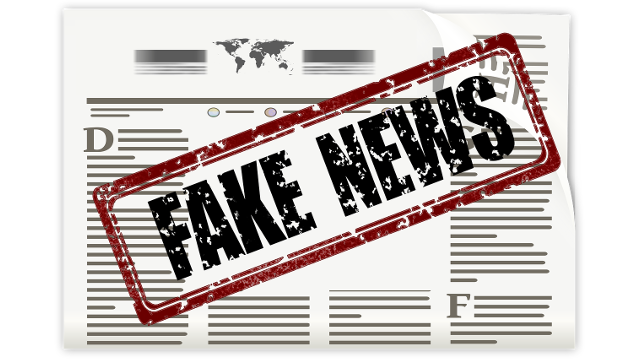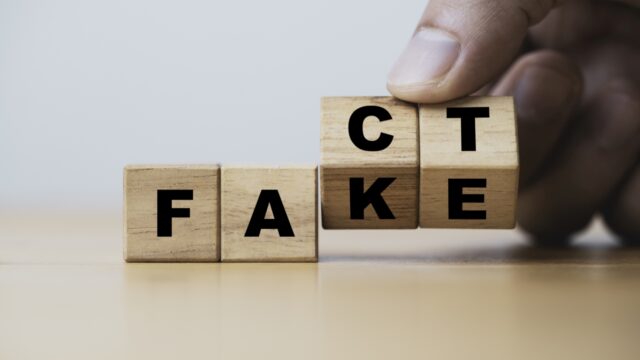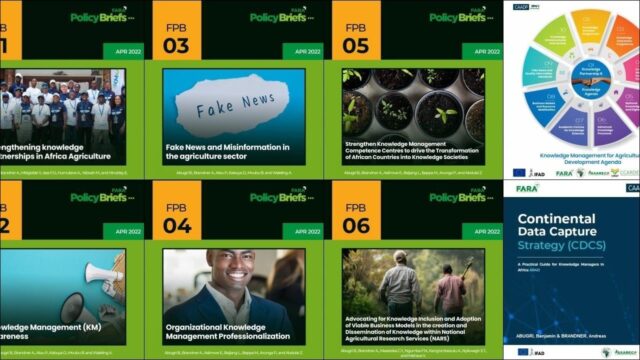
How much fake news is really shared on Facebook, and who shares it? [Top 100 journal articles of 2019]
This article is part 7 of a series reviewing selected papers from Altmetric’s list of the top 100 most-discussed scholarly works of 2019.
Less than you think, but shared much more by older people
The phenomenon of fake news has captured the interest of the public and media in the wake of the flood of disinformation that circulated through social media and on YouTube in the lead up to the 2016 United States presidential election. The following Facebook advertisement is one of many examples of fake news circulated during the election campaign:

In response to this issue, we’ve explored fake news from a knowledge management (KM) perspective in numerous RealKM Magazine articles, with research arguing that it is important to do this. A 2018 paper1 looking at KM and leadership advises that “in times of ‘fake-news’ and ‘alternative facts’ the validation of knowledge is getting more important. Managing knowledge on a process level is not enough.”
But how much fake news is actually shared on social media and YouTube, and who is sharing it? The #51 most discussed article2 in Altmetric’s top 100 list for 2019 looks at this in regard to the sharing of false articles on Facebook during the 2016 presidential election campaign. The research involved uniquely linking an original survey with sharing activity as recorded in private Facebook profile data from a consenting and substantial subset of the survey respondents.
Contrary to popular belief, the research found that sharing fake news was actually quite rare during the 2016 presidential election campaign, as summarised in the abstract below. The researchers state that “It is important to be clear about how rare this behavior is on social platforms: The vast majority of Facebook users in our data did not share any articles from fake news domains in 2016 at all … [and] this is not because people generally do not share links.”
In regard to the question of who shares fake news, the research found that Republicans shared more stories from fake news domains than Democrats, and that older Americans were more likely to share articles from fake news domains. However, the researchers alert that a Republican political orientation is perhaps expected, given the overwhelming pro-Trump orientation in both the supply and consumption of fake news during the election campaign period.
The greatest concern of the researchers is in regard to the extent to which older people shared fake news, with users over 65 sharing nearly seven times as many articles from fake news domains as the youngest age group.
What does this mean for knowledge management?
Globally, the population is aging, and one of the impacts of this is that people are working for longer. This means that the potential reasons put forward by the researchers for why older people share much more fake news than young people have implications for knowledge sharing in organisations. The researchers alert that:
Two potential explanations warrant further investigation. First, following research in sociology and media studies, it is possible that an entire cohort of Americans, now in their 60s and beyond, lacks the level of digital media literacy necessary to reliably determine the trustworthiness of news encountered online … A second possibility, drawn from cognitive and social psychology, suggests a general effect of aging on memory. Under this account, memory deteriorates with age in a way that particularly undermines resistance to “illusions of truth” and other effects related to belief persistence and the availability heuristic, especially in relation to source cues.
Further, although the sharing of fake news is rare, a significant amount of fake news has been observed to circulate in regard to particular events or issues, and to be as a result of organised disinformation campaigns. In the case of the 2016 United States presidential election campaign, thirteen Russian nationals and three Russian companies have been indicted “for committing federal crimes while seeking to interfere in the United States political system, including the 2016 Presidential election.” In the case of the current Australian bushfire crisis, a flood of fake news that is seeking to deny links between the crisis and climate change is potentially being sponsored by the same industry bodies that have long sought to spread disinformation in regard to environmental issues.
This suggests that in addressing the problem of fake news, we should be less concerned about the actions of platforms like Facebook, and more concerned about the actions and ethics of governments and industries.
Author abstract
So-called “fake news” has renewed concerns about the prevalence and effects of misinformation in political campaigns. Given the potential for widespread dissemination of this material, we examine the individual-level characteristics associated with sharing false articles during the 2016 U.S. presidential campaign. To do so, we uniquely link an original survey with respondents’ sharing activity as recorded in Facebook profile data. First and foremost, we find that sharing this content was a relatively rare activity. Conservatives were more likely to share articles from fake news domains, which in 2016 were largely pro-Trump in orientation, than liberals or moderates. We also find a strong age effect, which persists after controlling for partisanship and ideology: On average, users over 65 shared nearly seven times as many articles from fake news domains as the youngest age group.
Header image source: Gerd Altman on Pixabay, Public Domain.
References:
- Winkler, K., & Wagner, B. (2018). The relevance of knowledge management in the context of leadership. Journal of Applied Leadership and Management, 5(1). ↩
- Guess, A., Nagler, J., & Tucker, J. (2019). Less than you think: Prevalence and predictors of fake news dissemination on Facebook. Science advances, 5(1), eaau4586. ↩
Also published on Medium.





